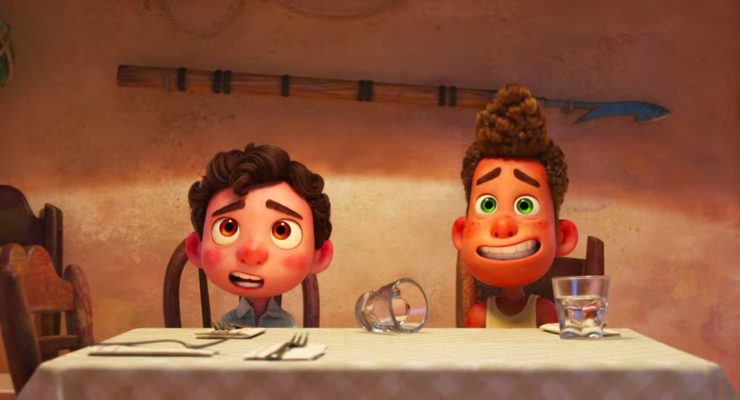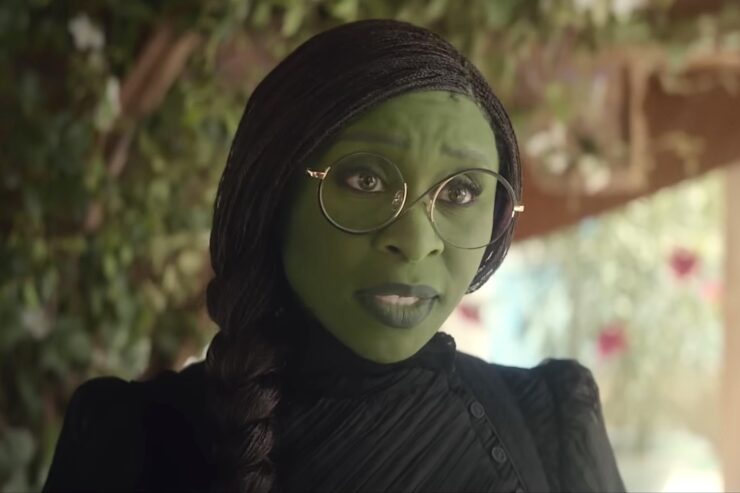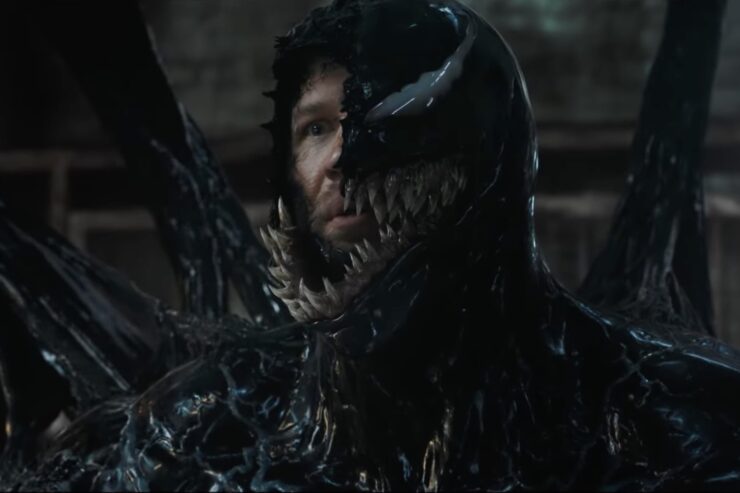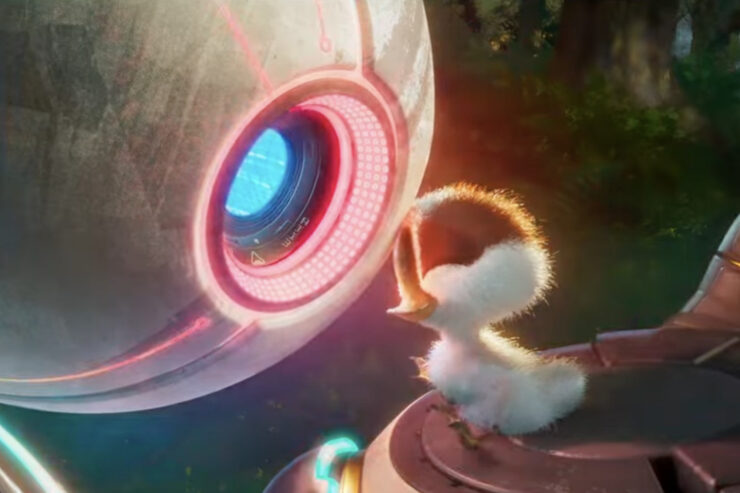Made during the 2020 quarantine, Luca is Pixar’s next attempt to make adults and children alike cry with tender tales of family, friendship, and love. The story of a young sea monster named Luca (Jacob Tremblay) and his unlikely friendship with fellow sea monster Alberto (Jack Dylan Grazer), Luca had the opportunity to do beautiful and unexpected things. But the Pixar method is wearing thin these days, and there’s not enough uniqueness in the film to make it stand out among their offerings.
Set in the Italian Riviera, Luca details the trials of its eponymous hero as he struggles with that age-old sea-person conundrum—interest in life on the surface despite being forbidden from it. Upon meeting Alberto, a boy roughly his own age, Luca learns that their people transform into humans on land (provided they don’t get wet), and takes to exploring with trepidation and wonder. The duo’s desire to explore hinges on their ability to get their hands on a Vespa, which Alberto believes can take them anywhere in the world.
Upon entering the seaside village of Portorosso, the boys learn of a triathlon-style race for kids that takes place there every year, and is always won by town bully Ercole Visconti (Saverio Raimondo). Ercole saved up his years worth of race prize money to get a very fancy Vespa, putting Alberto and Luca in mind of winning that race for themselves. They befriend a girl named Giulia (Emma Barman), who comes to town each summer to live with her stoic fisherman father Massimo (Marco Barricelli). Giulia is desperate to end Ercole’s “reign of injustice” and tries to win the race every year on her own, even though you can run it in teams of three, so you can see where this is going: The trio agree to train for the race together, with Giulia doing the swimming portion, Luca on the biking portion, and Alberto on the eating contest.
At its heart, Luca is meant to be a film about how friendships can change and enlighten you; director Enrico Casarosa stated in interviews that the two main characters were based upon himself and his own friend Alberto, a young man who was far more adventurous and worldly than he was in youth. Luca and Alberto’s relationship focuses on this dynamic, Luca’s sheltered upbringing giving way to Alberto’s mantra of “Silencio, Bruno”—the phrase he utters whenever his mind tries to warn him away from potentially frightening or dangerous situations. Through Alberto, Luca learns to be braver and thrives on the surface, even as his parents search desperately for him among the town’s children.
But despite its moving friendships and themes, Luca doesn’t earn its spot among the best Pixar films. It’s first problem comes from over-reliance on the Pixar “formula,” which always comes with a central task attached to its characters. In Luca, this is the Pontorossa Cup, the triathlon that the kids train for throughout the majority of the film. The race itself is the least interesting aspect of the entire story, and only exists to provide its narrative with stock plot points and characters that the animation house is accustomed to using; practice montages, stakes with a clear reward attached, a time limit placed upon those stakes. The entire film could have functioned just a well with the two boys working on Massimo’s fishing boat (which they do at various points in the narrative) to keep earning money for their Vespa-based dreams.
Ercole’s place in the story is as rote as it gets on the Pixar roster, interchangeable with their other slimy bullies like Monsters Inc.’s Randall and Ratatouille’s Chef Skinner. Focusing in on such a blunt and boring rivalry robs the film of its nuance and forces the narrative into the set number of beats that one expects in these exercises. For a studio that built their reputation on being more complex than your average animated family films, it’s disappointing to see Pixar settle into groves and trust their formula to do the work for them.
There’s another awkward aspect to Luca, and that hinges on queerness. A number of viewers (and this reviewer) have already noted that while the film does nothing definitive, there’s a very blatant allegory running through Luca and Alberto’s story, one that could easily be read as a tale of two boys who are having difficulty “coming out” in a world that has no intention of accepting sea monsters. They are close as a pair, beautifully so, and there are moments when the film renders something that could be the first inklings of love between the two. (Obviously, it’s not overt because they’re kids, but children do form crushes and strong bonds that can eventually translate into romance as they grow.) Casarosa has gently but firmly denied this reading—after all, it is based on his real life friendship.
This insistence gets even more awkward because of the allegorical nature of the story, and other reveals that occur later on in the narrative. We’re meant to infer that being a “sea monster” is just another way of being an outsider—or an underdog, as Giulia terms them—but the fact of the matter is that being underwater creatures of the deep are an actual threat to Luca and Alberto’s safety in the town of Pontorosso in a way that being an underdog blatantly is not. The village has legends about sea monsters and all their fishermen vow to hunt them down on sight, including Massimo, who is by all accounts a giant, soft-spoken teddy bear of a man. The boys are aware that if they are discovered, they will be murdered: That doesn’t sound like a metaphor for being a plain old outsider. And it makes the moments when Luca and Alberto only have each other stand out even more.
While it is important for young boys to have examples of loving friendships that they can emulate—and most people who protest queerness being levied onto any story usually cite that as their first point of anger—that’s a pointless issue to take when you look back at Pixar’s previous projects. Their entire history is full to the brim with close male friendships (Woody and Buzz, Mike and Sully, Remy and Linguini, Lightning and Mater, Carl and Russell), close male-female friendships (Marlin and Dory, Joe and 22, Woody and Jesse), and close male familial bonds (the Incredibles, Ian and Bartley, Miguel and Héctor). Notice that the same can’t be said for relationships between female characters, and that Pixar has a long-running history of hetero romance to the point where different genders had to be ascribed to two robots who look, respectively, like a Rubik’s cube with binoculars and a lost Apple earbud.
The point is, if the creators of Luca had paused for a moment to realize the accidental allegory emerging in their story, they could have done some restructuring and told a tale they’d truly never told before. And that tale is one that’s needed, and one that would have told a different version of acceptance than the one they’ve offered us before. It’s too bad because Luca, as it stands, is a very sweet story… that ultimately doesn’t have much to say.
And sure, you’ll probably still cry at the end. The Pixar format still works on that front, at least. But it’s hard not to walk away from Luca thinking about all the things it could’ve been, and ultimately chose not to be.
Emmet Asher-Perrin does really want to eat bowls and bowls full of pasta now, though. You can bug them on Twitter, and read more of their work here and elsewhere.














